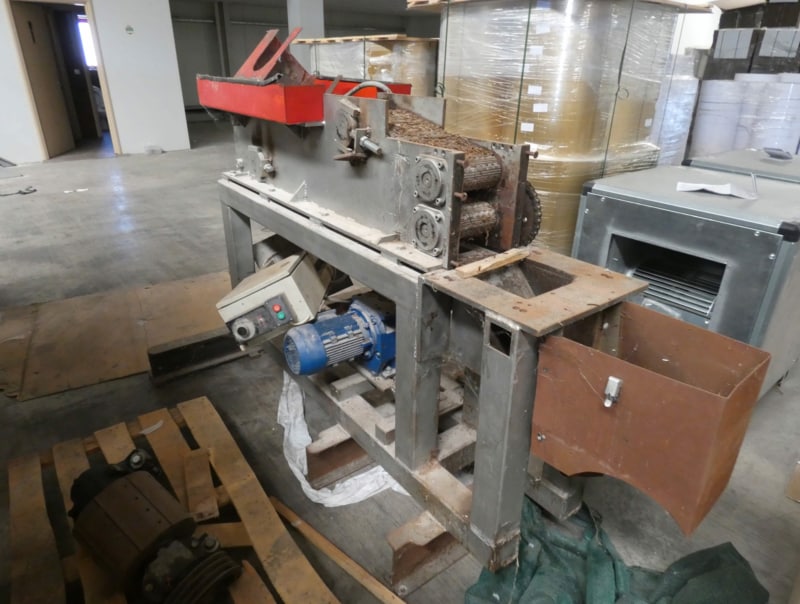
In Focus: A day in the life of an ITP Manager
19 MAR 2018

Stefanie Pollet is a manager in the Illicit Trade Prevention (ITP) team at Philip Morris International, covering the Benelux region. She has been with the company since 2001. STOP ILLEGAL caught up with her to ask about her role, goals, tactics, and ambitions.
STOP ILLEGAL: What is a typical day for you?
Stefanie: I’m responsible for the prevention of illicit trade in the three Benelux markets. It all starts with collecting data and intelligence. If you want to fight the problem, you have to be aware of the size and the nature of the problem.
Our sales representatives and retailers inform me when they suspect illegal cigarettes are being sold in shops, or on a website or social media. We then investigate the situation and collect as much information as we can, not only on the seller, but also the supplier. This is not easy. When we feel we have collected sufficient information, we hand it over to law enforcement.
We not only support law enforcement by providing concrete information. We also provide training support and information on how to identify counterfeit cigarettes; how illegal tobacco is transported and covered during transport; and trends on the black market.
Informing consumers of the criminal networks behind illegal trade and the impact it has on society, legal tobacco business, and governments, is also an important part of the job.
STOP ILLEGAL: Tell us about the problems you see in Belgium?
Stefanie: Around 106 million illicit white cigarettes were seized last year in Belgium, less than we have seen in previous years. In 2015, more than 250 million cigarettes were seized.
Since 2016, there has been more of a focus on cracking down on illegal tobacco factories, which seem to be popping up more and more. Last year, at least six illegal factories were raided in the Netherlands.
Belgium is a transit country so a lot of illegal cigarettes pass through. We have Europe’s second biggest port, Antwerp. Shipping containers can have around 10 million cigarettes inside, so these are big volumes. This explains why we have such big seizures in Belgium.
STOP ILLEGAL: Have you been involved in any factory raids recently?
Stefanie: In January this year, there was an illegal factory raided in Grobbendonk, near Antwerp. In this particular case, customs found a major factory that still had space for expansion. It was sophisticated. They had living compartments, with eight beds inside the factory. They had a kitchen, a TV and lots of other things to allow them to stay in the factory full time. The machines were very sophisticated too. This all shows we are dealing with really professional, organized networks.
The illegal factories I saw were mainly situated in industrial areas, where you have car dealers and distribution centers, for example. When you drive through those areas you would never believe there were illegal factories there. Trucks are driving through these areas all the time, so you would never realize when a truck is leaving with a load of illegal cigarettes.
STOP ILLEGAL: Have criminals’ tactics changed over the years?
Stefanie: In the past, illegal production appeared mostly in China, and then it moved on to Eastern Europe, and countries such as Poland. In 2016, Poland was the country with the most illegal factory raids, with 37. Given the increasing number of investigations and raids in Poland, it seems that the criminals have decided to move their factories to, amongst others, Benelux countries. Last year, in the Netherlands, FIOD (Fiscal Information and Investigation Service) broke records by raiding six illegal factories. The change in location of illegal factories is logical, because if you look at the products being made in the illegal factories, a lot of them are obviously destined for countries like the U.K. Factories are simply being moved closer to the destination market. It takes out the element of distribution risk and also transport costs.
STOP ILLEGAL: What are your priorities for the next year?
Stefanie: My first priority is monitoring the EU Track and Trace system and security features. This system will have a big impact on tobacco manufacturers and the whole distribution sector, who will have to adapt their machines and processes by May 2019. Tobacco products will require a unique ID code on their packaging and every movement of these products will have to be recorded. So all these products will have to be scanned at every stage along the supply chain.
Another important priority for me is anti-diversion of our products. We’re doing everything we can to prevent our products being diverted to other markets, by intensifying our supply chain control measures. This also includes talking to other departments inside PMI, customs and our trade partners in wholesale and retail. We can’t tackle this problem on our own.
We also now have an added responsibility to protect our new smoke-free offering. A smoke-free future depends on many factors, including the protection of consumers from opportunists and criminals exploiting the new smoke-free product category. In order to accelerate and protect a smoke-free future, we will continue to raise awareness among our consumers, business partners, and regulators on the dangers of the illegal trade of smoke-free products.


